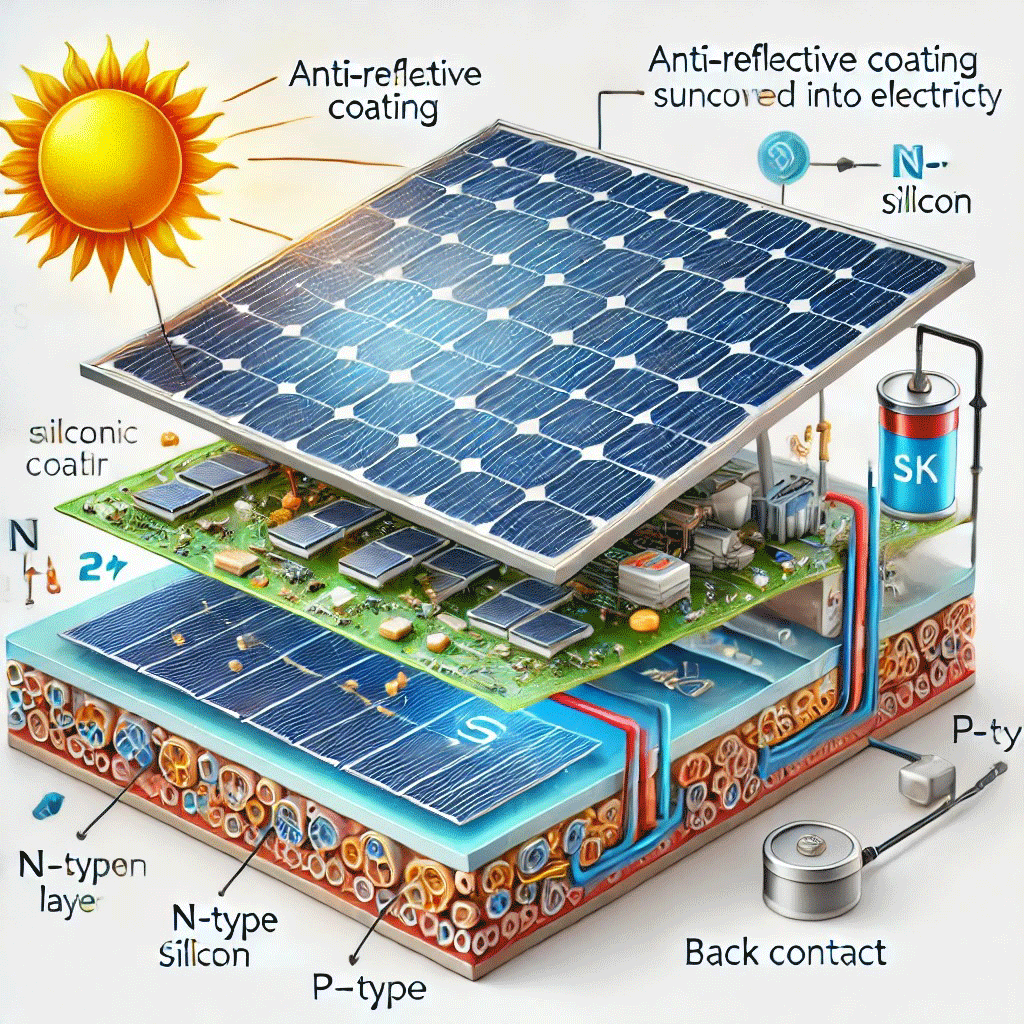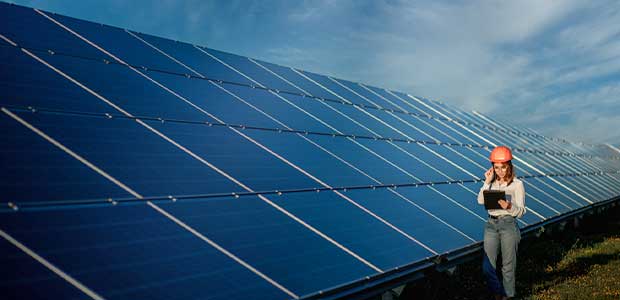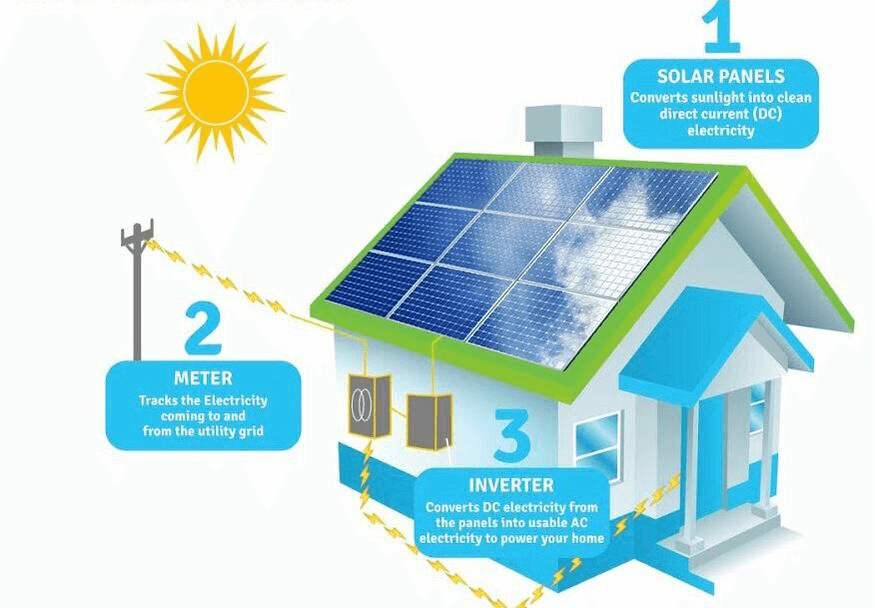Simply Solar Illinois: Green Solar Solutions to Light Up Your Home
Simply Solar Illinois: Green Solar Solutions to Light Up Your Home
Blog Article
Solar Power 101: A Novice's Overview to Sustainable Power Solutions
As the globe progressively shifts towards lasting power services, comprehending the principles of solar power becomes necessary for both people and companies. By exploring the benefits of solar technology, alongside the financial rewards and installment procedures, one can get a clearer point of view on how to successfully integrate this eco-friendly source into their power method.
Understanding Solar Power
At its core, recognizing solar energy includes understanding the basic concepts of just how sunlight can be exchanged functional electricity. Solar energy is obtained from the sunlight's radiation, which can be harnessed with various innovations. The key mechanism for this conversion is the photovoltaic or pv impact. This phenomenon takes place when sunshine strikes semiconductor products, generally silicon-based, within solar cells. The energy from the sunshine thrills electrons in the semiconductor, allowing them to move easily and create direct present (DC) electricity.

Recognizing solar power additionally includes acknowledging its ecological benefits. By making use of sunlight, we can reduce greenhouse gas emissions and minimize air contamination, adding to a more sustainable future. The improvements in modern technology and effectiveness of solar systems remain to improve their viability, making solar power an increasingly attractive alternative for global power demands.
Kinds Of Solar Power Systems
Various sorts of solar power systems are commonly used to harness solar power for electrical power generation. The primary classifications consist of photovoltaic (PV) systems, focusing solar energy (CSP) systems, and solar thermal systems.
Photovoltaic or pv systems utilize solar panels composed of silicon cells that transform sunlight straight right into power. These systems are flexible and can be set up on roofs, ground places, or integrated into structure materials.
Focusing Solar energy systems, on the various other hand, employ mirrors or lenses to focus sunlight onto a tiny area, creating warmth that drives a heavy steam wind turbine to create electrical energy - Simply Solar Illinois. CSP systems are usually deployed in massive power plants and call for direct sunlight, making them much less suitable for over cast areas

Each sort of solar energy system has its special qualities, applications, and suitability depending upon geographical location, energy requirements, and budget, making it vital to review choices based upon specific scenarios. - Simply Solar Illinois

Advantages of Solar Energy
Using solar energy through various systems not only provides a sustainable way to create electrical energy however additionally uses a wide range of benefits. Among the most considerable advantages is the decrease in greenhouse gas emissions, contributing to a cleaner atmosphere and combating environment modification. Solar power is renewable, site web indicating it is endless and readily available as long as the sunlight shines, unlike fossil fuels, which are finite and depleting.
Moreover, solar energy can cause substantial expense financial savings gradually. House owners and businesses can decrease their electricity expenses significantly, and in most cases, they may make credit scores for excess energy generated via net metering. In addition, the solar sector develops tasks, from manufacturing to installation, boosting local economic situations.
An additional engaging benefit is energy freedom. By producing their own electrical power, individuals and neighborhoods can decrease reliance on external power sources, boosting resilience against fluctuating energy costs and supply disturbances. Moreover, solar power systems require minimal upkeep, making them a hassle-free option for sustainable power generation.
Installation Refine Introduction
The installment process for solar energy systems normally involves a number of vital actions that guarantee reliable integration into a building. Originally, an extensive website analysis is performed to examine the roofing system's positioning, shading, and structural honesty, which are important to optimizing photovoltaic panel performance. Following this analysis, the design phase begins, where a customized solar power system is set up based on the homeowner's power demands and choices.
Once the design is wrapped up, the essential licenses and approvals are obtained from neighborhood authorities, guaranteeing conformity with regulations. The real installation entails installing the solar panels on the roofing system or ground, attaching them to an inverter, and incorporating the system with the residential property's electrical arrangement. This stage may additionally involve installing battery storage space systems, depending upon the design.
After setup, a thorough examination is conducted to verify the system's capability and safety. The system is appointed, and home owners are informed on its procedure and upkeep. With the installation complete, the solar power system can start producing renewable resource, adding to sustainability and reducing energy costs. This organized approach makes certain that planetary systems are both effective and reputable, optimizing their long-lasting benefits.
Financial Rewards and Financial Savings
Exploring the economic incentives and financial savings associated with solar energy systems can substantially enhance the appeal of making the switch to eco-friendly energy. Various motivations exist at federal, state, and regional levels, created to minimize the first costs linked with solar setup. Among the most noteworthy incentives is the federal solar tax credit score, which allows homeowners to subtract a percent of their solar system installment prices from their government taxes. As of 2023, this credit stands at his explanation 30%, supplying substantial financial savings.
Along with tax credit reports, numerous states provide discounts that can better decrease ahead of time costs. Some utility companies additionally supply performance-based incentives, fulfilling solar power production with time. Financing alternatives, such as solar fundings and useful content leases, permit customers to install systems with little to no deposit, making solar energy much more available.

Lasting cost savings are one more critical aspect. By producing their very own power, property owners can significantly lower or perhaps remove their monthly energy costs. Additionally, solar systems can increase building worths, providing a strong roi. Generally, the mix of rewards and cost savings makes solar power a financially eye-catching selection for several houses.
Verdict
In final thought, solar power represents a crucial element of sustainable power solutions, supplying a pathway towards minimized carbon impacts and improved ecological security. Eventually, the transition to solar power not just cultivates ecological duty however also advertises financial cost savings and energy independence.
Report this page